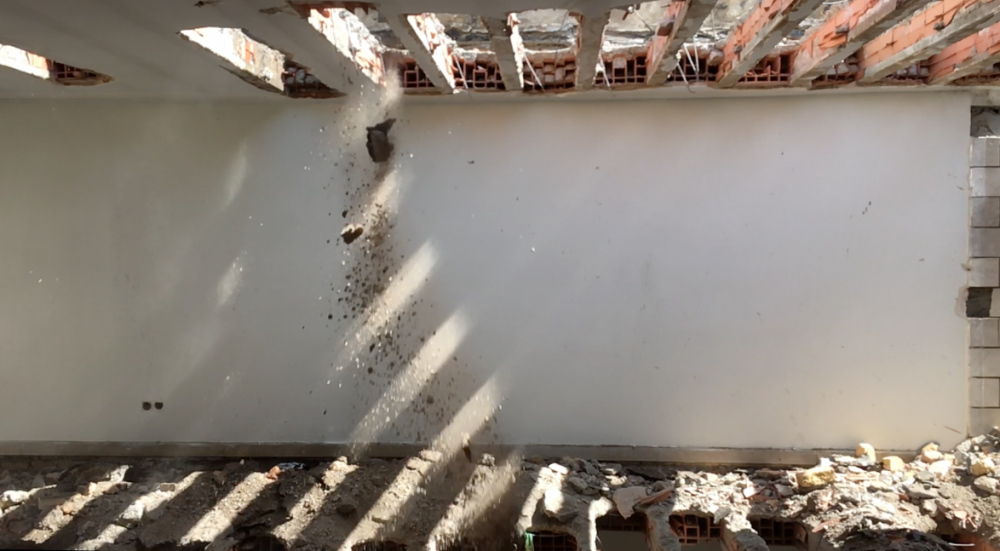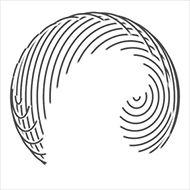Location
YARAT CENTRE
Bayil District (National Flag Square) Baku, Azerbaijan, AZ1003
OPENING HOURS
Tuesday – Sunday:
12 am > 8 pm
CONTACT
+99412 505 1414
YARAT CENTRE: FRAGILE FRONTIERS – VISIONS ON IRAN’S IN/VISIBLE BORDERS
22 Nov - 16 Feb 20
YARAT announces the group exhibition Fragile Frontiers: Visions on Iran’s in/visible borders, running from 22 November 2019 – 16 February 2020, presenting newly commissioned as well as recent works of 15 artists who view frontiers as precarious, ephemeral or frictional, arguing that no border – whether cultural, territorial or psychological – is completely durable. Examining the dilemma of borders within the Iranian context, alongside its neighbouring nations, the show raises questions about political identity as well as internal, interpersonal and international boundaries.
VIRTUAL TOUR 1st FLOOR
VIRTUAL TOUR 2nd FLOOR
Artists include: Nazgol Ansarinia, Kamrooz Aram, Dadbeh Bassir, Samira Eskandarfar, Ghazaleh Hedayat, Samira Hodaei, Gelare Khoshgozaran, Robin Mandel, Ali Momeni, Timo Nasseri, Jaleh Nesari, Navid Nuur, Leila Pazooki, Sara Rahbar, Neda Razavipour and the old master Mirza Kadym Irevani.
The exhibition’s title is inspired by the essay Fragile Frontiers: The Diminishing Domains of Qajar Iran by Professor Firoozeh Kashani-Sabet, which outlines two types of frontiers: literal, physical separation, and metaphorical ‘cultural’ boundaries. The exhibition at YARAT sheds light on non-violent divisions, that nevertheless disrupt constructive dialogue, uproot collective consciousness and negate common history, faith and culture.
On the first floor, the show explores the invisible frontiers between body space and city space; chaos and order; social and personal space; ‘I’ and ‘other’. Kamrooz Aram’s new multi-media work Elegy of Blue Architecture (2019) contains multiple cultural references from Iran, Azerbaijan and Afghanistan - countries united by a Persian heritage – through various materials and forms. Aram explains, ‘If the object in question is hundreds of years old and the borders that delineate nations have shifted and evolved over centuries, then the claim of national origin assigned to an object is dubious (geographic and national origin, of course, are not necessarily the same).’ His installation is set in dialogue with a masterpiece by Azerbaijani portraitist Mirza Kadym Irevani, famous for his “typical” Persian miniatures. Leila Pazooki’s work Untitled – Room #3 (2012/2019) also explores the notion of barriers: ‘Unwritten rules, social and cultural taboos, conservative and traditional limitations, laws that we are not familiar with – those are all invisible borders we encounter every day, boundaries we don’t realise we cross each minute.’
In response, the second floor offers a counter-position, focusing on the experience of boundlessness and exploration beyond physical limits, referencing elements of nature: earth, sky, water. An immersive marble and mirror gateway by artist Navid Nuur acts as a mediator of time, creating an entrance to a parallel universe. The cosmos is also discussed in Timo Nasseri’s commissioned work It’s always night, or we wouldn’t need light (2019), tracing the starry sky with small, black stone grains, dissolving and disappearing in the course of time. In her commissioned work The fluid body (2019), Neda Razavipour investigates the notion of inner/intimate memory and collective memory, related to her childhood spent on the shores of the Caspian Sea. The sound and video installation documents true stories gathered by the artist from Astara to Jolfa, Iran, including tales of people separated by the Aras river border. The Aras river border has also inspired the newly commissioned video by Jaleh Nesari, who whispers verses from poet Nizami Ganjavi, well known for his masterpiece Leili and Majnun (1188), where the protagonists bemoan their forced separation.
The exhibition is curated by Farah Piriye and Anna Fech.
Notes to editors:
Title: Fragile Frontiers: Visions on Iran’s in/visible borders
Location: YARAT Centre (National Flag Square), Bayil, AZ1003
Dates: November 22, 2019 – February 16, 2020
Opening times: Tuesday – Sunday, from 12.00 – 20.00
Admission is free
About YARAT
YARAT is an artist-founded, not-for-profit art organisation based in Baku, Azerbaijan, established by Aida Mahmudova in 2011. YARAT (which means 'create' in Azerbaijani) is dedicated to contemporary art with a long-term commitment to creating a hub for artistic practice, research, thinking and education in the Caucasus, Central Asia and surrounding region.
YARAT comprises YARAT Centre, ARTIM Project Space, YARAT Studios and an extended educational and public programme. YARAT Centre, a 2000m² converted Soviet-era naval building, opened in March 2015 and is the organisation's main exhibition space. The exhibition programme features new commissions by artists responding to the region. It supports and provides access to artists from the region, while engaging and introducing established, international artists.
In October 2015, YARAT opened ARTIM, a central, accessible and dynamic space in Baku's Old City. ARTIM (meaning 'progress' in Azerbaijani) shows experimental practices and new work by emerging Azeri art professionals (selected through open call) and the international artists from the residency programme. It features multiple small-scale projects each year and hosts ARTIM LAB, a programme enabling young artists to engage in workshops and daily studio practice to generate new ideas and works.
In 2016 YARAT launched a renewed residency programme. Aimed at developing young Azerbaijani voices and emerging international artists, the focus is on new, innovative practices and artists with an interest in the region. The residency programme hosts 6 international and 4 local artists a year at YARAT Studios’ spaces.
Education has been at the heart of YARAT's activities since its creation. With a dedicated public programme that includes courses, workshops, lectures, screenings, festivals, literature and theatre clubs and family weekends, YARAT aims to give access to broad audiences of all ages. The public programme invests proactively in building communities and nurturing a wider understanding of, and participation in, contemporary art.
For media and image inquiries please contact:
Milly Carter Hepplewhite and Lisa Hopf at Pelham Communications
Telephone: +44 2089693959
Email: milly@pelhamcommunications.com and lisa@pelhamcommunications.com

